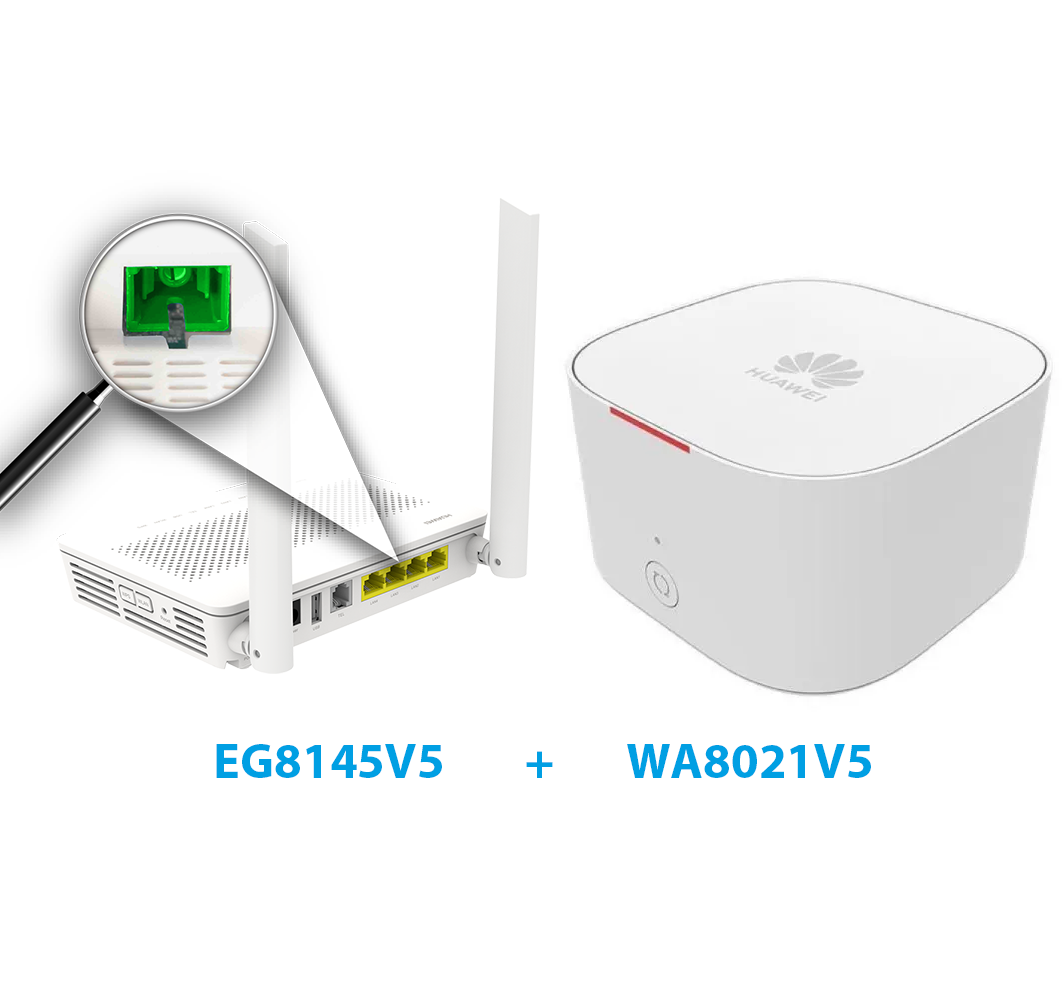-
€
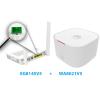
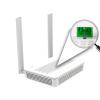
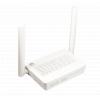
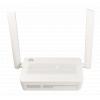
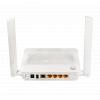
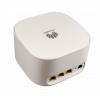
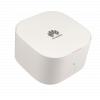
Huawei EG8145V5
Overview
The EchoLife EG8145V5 is a intelligent routing-type Optical Network Terminal (ONT) in Huawei FTTH solution. By using the GPON technology, ultra-broadband access is provided for home users. The EG8145V5 supports 802.11ac dual-frequency bands and features high-performance forwarding capabilities to ensure an excellent experience with voice, Internet, and HD video services. These features make the EG8145V5 a perfect option for broadband access.
Admin access login credentials: Epadmin / adminEp
Smart interconnection
- Smart Wi-Fi coverage
- SIP/H.248 auto-negotiation
- Any port any service
- Parental control
- L2/L3(IPv4) forwarding: 1G uplink, 2G downlink
Smart service
- Scheduled Wi-Fi shutdown
- Smart Wi-Fi sharing:Portal/802.1x authentication SoftGRE-based sharing
Smart O&M
- IPTV video quality diagnosis
- eMDI
- Rogue ONT detection and isolation from the OLT
- Call emulation, and circuit test and loop-line test
- PPPoE/DHCP simulation testing
- WLAN emulation
Layer 3 Features
- PPPoE/Static IP/DHCP
- NAT/NAPT
- Port forwarding
- ALG, UPnP
- DDNS/DNS server/DNS client
- IPv6/IPv4 dual stack, DS-Lite and IPv6 SPI
- Static/Default routes
- Multiple services on one WAN port
Multicast
- IGMP v2/v3 proxy/snooping
- MLD v1/v2 snooping
QoS
- Ethernet port ratelimitation
- 802.1p priority
- SP/WRR/SP+WRR
- Broadcast packet rate limitation
Security
- SPI firewall
- Filtering based onMAC/IP/URL addresses
Common O&M
- OMCI/Web UI/TR069
- Variable-length OMCI messages
- Dual-system softwarebackup and rollback
Power Saving
- Indicator power saving
- COC V5
Huawei WA8021V5
The Huawei WA8021V5 is a device that combines the functions of a wireless router and a signal booster. It can transmit wireless networks on both 2.4 and 5 GHz bands simultaneously, utilizing Wi-Fi 5 standard, including IEEE 802.11 b/g/n in the 2.4 GHz band and IEEE 802.11 a/n/ac in the 5 GHz band. The maximum theoretical throughput is 300 Mbps in the 2.4 GHz band and 867 Mbps in the 5 GHz band. The device is equipped with 3 gigabit Ethernet ports (10/100/1000 Mbps) that can serve as either WAN or LAN, depending on the type of connection. Inside the housing, there are 4 omnidirectional antennas with a gain of 2 dBi each.
In router mode, the device functions as a typical wireless router. You can connect the signal to any Ethernet port, and the connection will be automatically detected. The WA8021V5 will create its own wireless network, to which you can then connect.
In signal booster mode, the device is used to amplify the range of an existing wireless network. All Ethernet ports in this mode function as LAN ports. The WA8021V5 supports 802.11k/v data roaming and Mesh network, providing better performance than a regular signal booster without introducing additional delays. You can establish connections using the WPS button.

Wi-Fi 5 AC1200 wireless network, 3 gigabit Ethernet ports
The Huawei WA8021V5 utilizes the Wi-Fi 5 standard and can transmit wireless networks on both the 2.4 GHz and 5 GHz bands simultaneously. It supports IEEE 802.11 b/g/n protocols in the 2.4 GHz band and IEEE 802.11 a/n/ac protocols in the 5 GHz band. The maximum theoretical throughput is 300 Mbps for the 2.4 GHz band and 867 Mbps for the 5 GHz band.
This speed is more than sufficient for most applications, allowing for fast file downloads and high-resolution online content streaming. The device is equipped with 3 gigabit Ethernet ports (10/100/1000 Mbps), and each of them can function as either WAN or LAN (with a maximum of 1 WAN port at a time).
Router mode
In this mode, the device operates as a standard wireless router, and the network needs to be connected via an Ethernet cable. The device features 3 gigabit Ethernet ports (10/100/1000 Mbps), and each port can function as either WAN or LAN. Upon connecting the internet source, it is automatically recognized. However, it's important to note that only a maximum of 1 WAN port can be used simultaneously.
The device broadcasts its own wireless network, to which you can connect after completing a brief initial configuration.

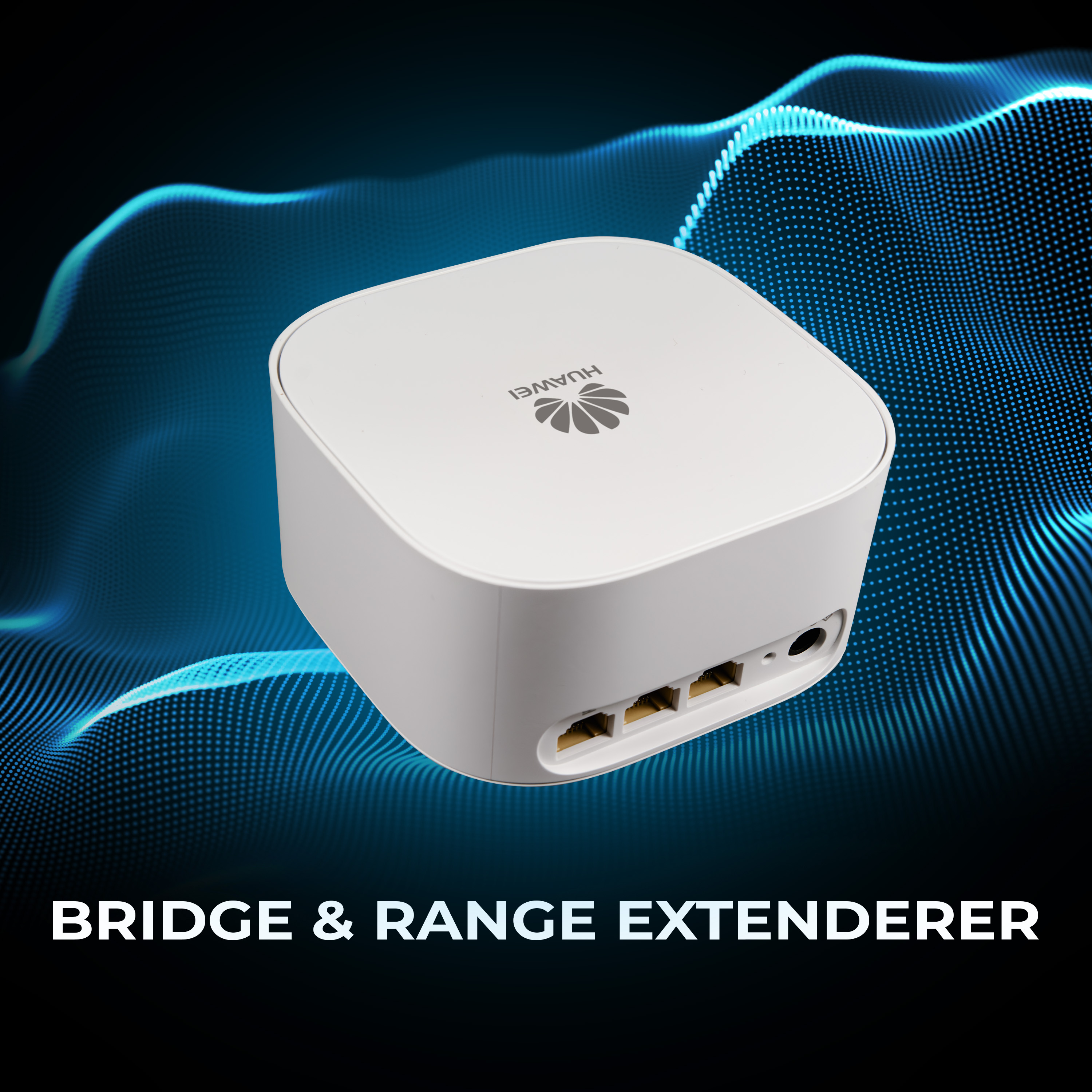
Range extender / bridge mode
In this mode, the device functions as a bridge and can extend the range of an existing wireless network. Connections can be established wirelessly or using an Ethernet cable. The Ethernet ports automatically detect the connection and operate as either WAN (Wide Area Network) or LAN (Local Area Network).
The device extends an existing Wi-Fi network to increase its coverage. WA8021V5 supports data roaming (802.11k/v) and Mesh network (roaming is utilized only if the main device also supports it). An additional advantage is the WPS button, allowing for quick configuration.
Specifications
| EG8145V5 | |
| DEVICE PARAMETERS | |
|---|---|
| Dimensions (H x W x D) | 30 mm x 173 mm x 120 mm (without external antenna and pads) |
| Weight | About 250 g |
| Operating temperature | 0°C to +40°C |
| Operating humidity | 5% RH to 95% RH (non-condensing) |
| Power adapter input | 100–240 V AC, 50 / 60 Hz |
| System power supply | 11–14 V DC, 1.5 A |
| Static power consumption | 5.3 W |
| Max. power consumption | 18 W |
| NNI | GPON |
| UNI | 1POTS+4GE+2.4G/5G Wi-Fi+1USB |
| Optical connector | SC/APC |
| Indicators | POWER/PON/LOS/LAN/TEL/USB/WLAN/WPS |
| Installation mode | On the desk, or on the wall |
| Compliance certification | CE/WiFi |
| INTERFACE PARAMETERS | |
| GPON Port |
• Class B+ • Receiver sensitivity: -27 dBm • Overload optical power: -8 dBm • Wavelengths: US 1310 nm, DS 1490 nm • Wavelength blocking filter (WBF) of G.984.5 • Flexible mapping between GEM Port and TCONT • GPON: consistent with the SN or passwordauthentication defined in G.984.3 • Bi-directional FEC • SR-DBA and NSR-DBA •Type B (single-homing&dual-homing) |
| Ethernet Port |
•Ethernet port-based VLAN tags and tag removal • 1:1 VLAN, N:1 VLAN, or VLAN transparenttransmission • QinQVLAN• Limit on the number of learned MAC addresses • MAC address learning • Auto-adaptive 10 Mbit/s, 100 Mbit/s or 1000 Mbit/ |
| POTS Port |
•Maximum REN: 4 • G.711A/μ, G.729a/b and G.722 encoding/decoding • T.30/T.38/G.711 fax mode • DTMF • Emergency calls (with the SIP protocol) |
| USB Port |
•USB2.0 •FTP-based network storage •File/Print sharing based on SAMBA •DLNA function |
| WLAN |
•IEEE 802.11 b/g/n (2.4G) •IEEE 802.11 a/n/ac (5G) •2 ×2 MIMO (2.4G&5G) •Antenna gain: 5 dBi •WMM/Multiple SSIDs/WPS •2.4G&5G concurrent •Air interface rate:300 Mbit/s (2.4G); 867 Mbit/s(5G) |
| Huawei WA8021V5 | |
| Physical | |
|---|---|
| Dimensions (H x W x D) |
65.5mm×105mm×105mm |
| Weight (without power adapter) | About 195 g |
| Nominal power supply | 12 V DC, 1 A |
| Static power consumption | 3,4 W |
| Max power consumption | 7,8 W |
| LED indicator | 1x status |
| Buttons | Reset and pairing |
| Memory |
128 MB Flash 28 MB RAM |
| Installation mode | On the desk |
| Operating temperature | 0°C - +40°C |
| Operating humidity | 5% RH to 95% RH (non-condensing) |
| Interfaces |
Wi-Fi 5 3 gigabit Ethernet ports |
| Antennas | 4 internal antennas |
| Wi-Fi features | |
| Supported protocols |
Wi-Fi 5 2,4 GHz: IEEE 802.11 b/g/n 5 GHz: IEEE 802.11 a/n/ac |
| MIMO |
2,4 GHz: 2x2 MIMO 5 GHz: 2x2 MIMO |
| Antenna gain | 2 dBi |
| Maixmum theoretical throughput |
2,4 GHz: 300 Mb/s 5 GHz: 867 Mb/s |
| Others |
WMM (Wi-Fi MultiMedia) Band steering |
| Features | |
|
Home Network
|
Plug and play One-click pairing and automatic networking Automatic Wi-Fi configuration synchronization Wi-Fi channel optimization within the home network Wi-Fi roaming (802.11k/802.11v) within the home network 4K over Wi-Fi Network self-healing Mesh network (tree type) |
|
Home Network Management
|
Remote management and maintenance Management of mobile phone APPs |
| WAN |
2 upstream modes: Ethernet or Wi-Fi
|
| Layer 3 features | PPPoE/static IP/DHCP NAT/NAPT Port forwarding ALG, UPnP DDNS/DNS server/DNS client IPv6/IPv4 dual stack Static/default routes |
| Q&M |
Web UI Dual-system software backup and rollback |
| Security | SPI firewall |






 Polski
Polski English
English Italiano
Italiano Español
Español Čeština
Čeština Српски
Српски Deutsch
Deutsch Ελληνικά
Ελληνικά Slovenský
Slovenský


